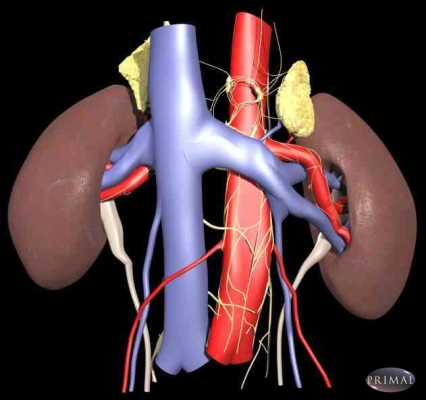ANCA/ANA/Complement/Anti-GBM
Click on the links below.
The third of the specialist tests comprise anti-neutrophil cytoplasmic antibodies (ANCA)/ANA/complement/anti-GBM.
These tests should only be sent in patients with haematoproteinuria not all patients with AKI.
Patients who are dialysis dependent on referral to nephrology with a crescentic glomerulonephritis often don’t recover renal function, so it is crucial to refer patients with AKI and haematoproteinuria urgently.

Anti-neutrophil cytoplasmic antibodies (ANCA)
ANCA is a feature of the majority of small vessel vasculitis.
Patients may have systemic symptoms such as arthalgia, myalgia, cough, haemoptysis, sinus problems or vasculitis rash.
The renal manifestation of this disease is a crescentic glomerulonephritis.
ANA
Anti-nuclear antibodies are a screening test for lupus. If these are positive, the laboratory performs more specific antibody tests such as double stranded DNA antibodies.
The patient may have systemic symptoms such as arthralgia, myalgia, rash, serositis.
Complement
Complement activation accompanies many infectious and inflammatory processes. Low serum complement is associated with circulating immune complexes. Renal conditions which classically have low C3 and or C4 include immune complex diseases such as systemic lupus erythematosus (SLE), endocarditis, post streptococcal GN.
Anti-GBM
Anti-GBM antibodies are positive in anti-glomerular basement antibody disease (Goodpastures) and cause a severe crescentic glomerulonephritis.
Patients may have frank haematuria. Renal function deteriorates rapidly and patients quickly become anuric. Pulmonary haemorrhage can be a feature in smokers.
Once patients are anuric they are unlikely to recover renal function.